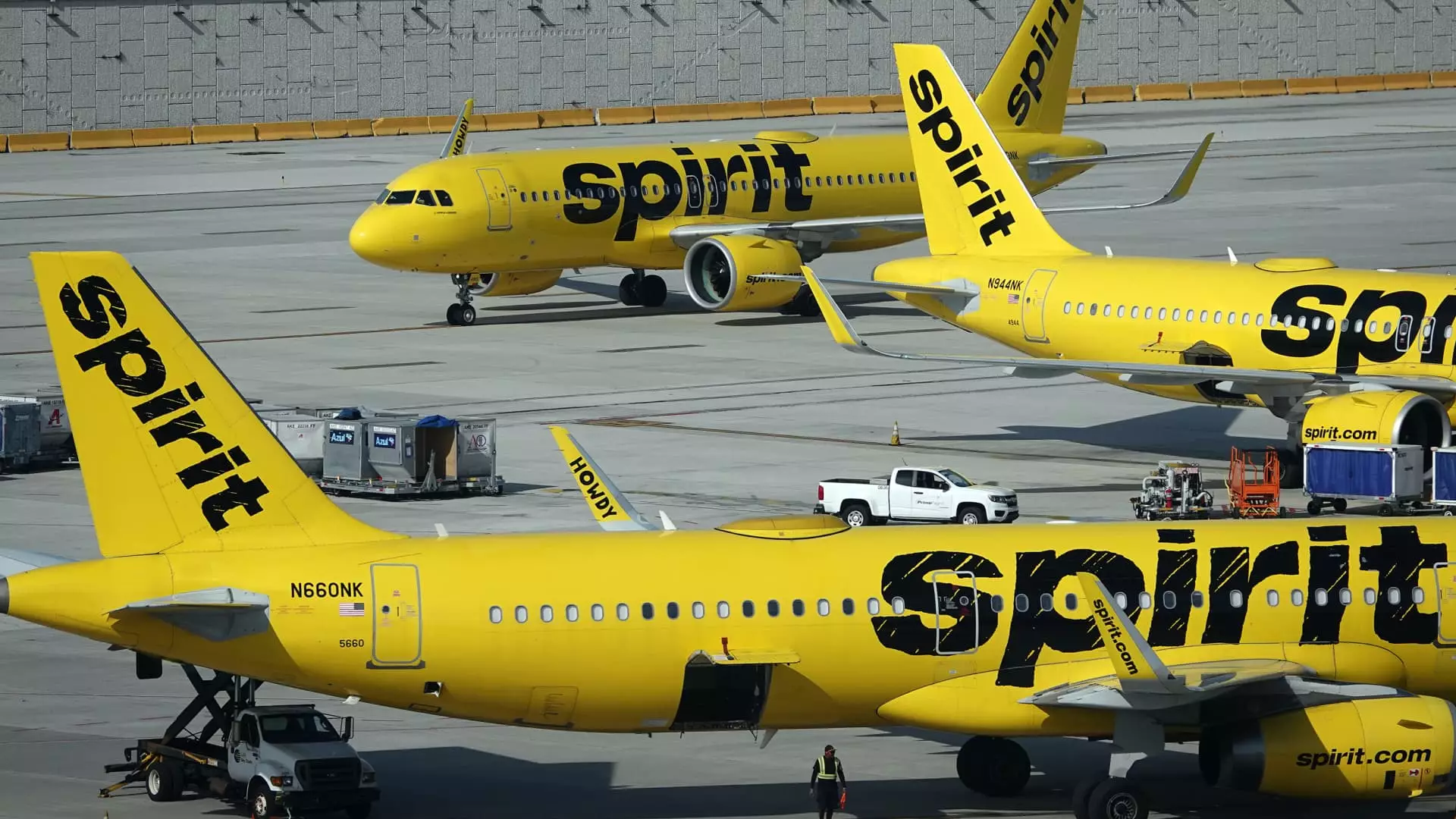Spirit Airlines has announced a significant shift in its operational strategy as the airline attempts to stabilize its financial standing amidst ongoing challenges in the aviation industry. The budget carrier recently disclosed plans to cut jobs and sell off a number of older Airbus aircraft, a move that has resulted in a more than 20% increase in its share prices following the announcement. By selling off 23 obsolete aircraft, Spirit aims to raise approximately $519 million, a crucial influx of cash that could help the airline breathe a little easier in the midst of fiscal turmoil.
As part of its strategy to improve financial health, Spirit is also targeting a reduction in operational costs by an estimated $80 million, primarily through workforce cuts. While the specifics regarding the number of jobs affected remain unclear, the carrier did confirm that its capacity for 2025 is expected to be reduced by a notable mid-teen percentage when compared to current operations. The airline has already initiated furloughs for around 200 pilots since September, highlighting the gravity of its situation. Meanwhile, the company notes that flight attendants are likely in a more stable position, largely due to many opting for voluntary leaves of absence.
An additional layer of complexity has emerged as Spirit continues to delay a critical refinancing deadline for over $1 billion in debt, now pushed to late December. This decision affords the airline temporary respite with its credit card processor, but it underscores an uncertain financial forecast. Spirit’s post-pandemic recovery has been hampered by shifts in travel demand and significant operational hurdles, particularly the grounding of numerous aircraft powered by Pratt & Whitney engines.
Despite the recent uptick in stock performance, Spirit’s long-term prospects remain shadowed by setbacks, including an 80% drop in stock value thus far this year — a decline exacerbated by a judge blocking its proposed acquisition by JetBlue Airways. The turbulent landscape also saw reports emerge this week of renewed merger discussions between Spirit and Frontier Airlines, a potential lifeline as both budget carriers navigate this turbulent market.
In a recent report reflecting its operational performance, Spirit projected a third-quarter negative operating margin of 24.5%, which, although still concerning, is a slight improvement from the previously anticipated margin of up to negative 29%. As Spirit Airlines endeavors to navigate the fallout from the pandemic and gear up for a more sustainable financial future, its bold strategies — including asset liquidation and restructuring — will play a crucial role in determining its viability in an increasingly competitive field.

